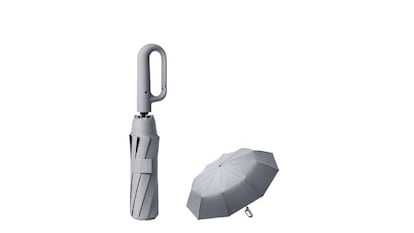Cable sobre la petición de información de la Embajada de EE UU sobre la muerte de Ricardo Ortega
"Si por cualquier razón no respondemos completamente, podemos esperar que las autoridades españolas atribuyan su incapacidad para aclarar las circunstancias de la muerte de Ortega a la negativa estadounidense a cooperar. La prensa española mantendría sin ninguna duda que esto significa que Estados Unidos tiene algo que ocultar", explica la nota diplomática.
| ID: | 188742 |
| Date: | 2009-01-26 08:52:00 |
| Origin: | 09MADRID81 |
| Source: | Embassy Madrid |
| Classification: | UNCLASSIFIED//FOR OFFICIAL USE ONLY |
| Dunno: | 07MADRID1000 07PORTAUPRINCE693 08MADRID542 |
| Destination: | VZCZCXRO4846 PP RUEHLA DE RUEHMD #0081/01 0260852 ZNR UUUUU ZZH P 260852Z JAN 09 FM AMEMBASSY MADRID TO RUEHC/SECSTATE WASHDC PRIORITY 0107 INFO RUEHLO/AMEMBASSY LONDON 1070 RUEHPU/AMEMBASSY PORT AU PRINCE 0099 RUEHLA/AMCONSUL BARCELONA 3759 RUEKJCS/SECDEF WASHDC RUEAWJA/DEPT OF JUSTICE WASHDC |
UNCLAS SECTION 01 OF 02 MADRID 000081 SENSITIVE SIPDIS STATE FOR L/DL, ALSO FOR EUR/WE AND WHA/CAR, DOJ FOR DOJ/OFL PATRICIA REEDY, ALSO FOR DOJ/OIA, OSD FOR ISA COL MCCLELLAND, LONDON FOR DOJ REP. DONNA MAIZEL E.O. 12958: N/A TAGS: KLIG, PREL, SP, HA SUBJECT: ORTEGA CASE: SPAIN SEEKS INFORMATION FROM USG IN CASE OF JOURNALIST KILLED IN HAITI REF: A. 07 PORT AU PRINCE 693 B. 08 MADRID 542 C. 07 MADRID 1000 1. (U) This is an action request, please see paragraph five. 2. (SBU) SUMMARY. Ricardo Ortega was a Spanish journalist shot and killed in Haiti in 2004 while covering the unrest there. There have been repeated suggestions in the media here that U.S. forces fired the shot that killed him. The Spanish National Court commenced an investigation into his death in June 2008. We received an MLAT request in August 2008 (forwarded to DOJ) and more recently a request from the Spanish Civil Guard for information related to the case. The most recent request seeks information on named USG officials in Haiti at the time of Ortega's death as well as information regarding U.S. forces there. On January 23, Spain's Council of Ministers authorized the declassification of a 2005 secret investigative report on Ortega's death, and Vice President Fernandez de la Vega told the press that Spain will "spare no effort" to clarify the circumstances of this case. Post requests instructions regarding a response to the Spanish information requests. END SUMMARY. 3. (U) Ortega was fatally wounded March 7, 2004, during a anti-Aristide demonstration in Port-au-Prince. Weeks after his death, Aristide supporters Yvon Antoine and Haitian Police Inspector Jean-Michel Gaspard were arrested and investigated for their involvement in the demonstration. Both were released and neither charged. After conducting its own investigation in 2004, Spain's Antena 3 television station (Ortega's employer), concluded that U.S. forces could have fired the fatal shot. In April 2007, Spanish authorities called on Haiti to create a joint official commission to investigate the case, but no such commission was formed, and the case continued within the Haitian system. We understand Spanish Ambassador to Haiti Paulino Gonzalez, accompanied by a Spanish special investigative envoy, called on the U.S. Ambassador to Haiti on two occasions (in 2005 and 2007) seeking U.S. cooperation. Spanish FM Moratinos accompanied Ortega's family to Haiti in April 2008 to retrieve the Haitian court's investigative results, and shortly thereafter the family disclosed the findings, which included an assertion that foreign soldiers may have killed Ortega. The Spanish press reported that the Haitian judge named U.S. forces but did not include that assertion in his findings since he had insufficient evidence. 4. (U) In August 2008, we received a MLAT request (forwarded to DOJ), seeking contact information for two journalists who were witnesses and also for relevant U.S. military records (our understanding is that U.S. forces went to the scene and rendered medical assistance after Ortega was shot). That request did not suggest USG personnel were a target of the investigation. On January 7, 2009, LEGAT received a request for law enforcement cooperation from the Civil Guard. That request (which we have e-mailed to L/DL and EUR/WE) seeks contact information for three named U.S. officials in Haiti at the time Ortega was shot, identification of officers commanding U.S. military personnel in Haiti at the time, reports regarding the activities of U.S. forces that day, and information on ammunition used by U.S. forces (our understanding is that no bullet was recovered from Ortega's body). It is unclear why the Civil Guard has made this latest request and done so outside of MLAT channels. 5. (SBU) Action request: Post requests instructions on responding to the Spanish requests. Regarding the second request, our recommendation is that we advise the Civil Guard we cannot respond and that Spain should continue to pursue any information requests relative to this case via the MLAT channel. That said, we would appreciate DOJ cooperation in facilitating an expeditious response to the original and any subsequent MLAT requests, to the maximum extent consistent with U.S. interests. If for any reason we do not respond or do not respond fully, we should expect the Spanish authorities to attribute their inability to clarify the circumstances of Ortega,s death to U.S. unwillingness to cooperate. The Spanish press would doubtless paint this as the U.S. having something to hide. More generally, failure to respond in a timely fashion to Spanish MLAT requests can affect other USG priorities with Spanish judicial authorities. MADRID 00000081 002 OF 002 6. (U) Embassy Madrid point of contact is Poloff Jenny Cordell, tel. 34-91-587-2392, cordellj@state.gov. CHACON |
Traducción automática. Puede que el texto traducido no sea fiel al original
Tu suscripción se está usando en otro dispositivo
¿Quieres añadir otro usuario a tu suscripción?
Si continúas leyendo en este dispositivo, no se podrá leer en el otro.
FlechaTu suscripción se está usando en otro dispositivo y solo puedes acceder a EL PAÍS desde un dispositivo a la vez.
Si quieres compartir tu cuenta, cambia tu suscripción a la modalidad Premium, así podrás añadir otro usuario. Cada uno accederá con su propia cuenta de email, lo que os permitirá personalizar vuestra experiencia en EL PAÍS.
¿Tienes una suscripción de empresa? Accede aquí para contratar más cuentas.
En el caso de no saber quién está usando tu cuenta, te recomendamos cambiar tu contraseña aquí.
Si decides continuar compartiendo tu cuenta, este mensaje se mostrará en tu dispositivo y en el de la otra persona que está usando tu cuenta de forma indefinida, afectando a tu experiencia de lectura. Puedes consultar aquí los términos y condiciones de la suscripción digital.




























































